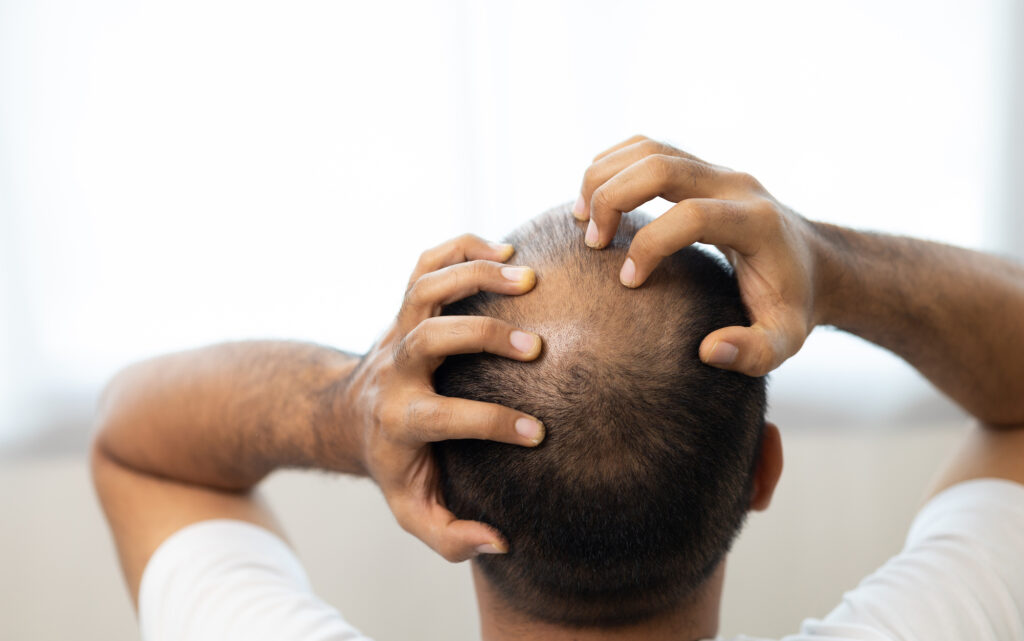The relationship between testosterone and hair loss is a topic that has fascinated scientists and individuals alike for decades. Hair loss, or alopecia, is a common concern that can affect both men and women, and it often raises questions about the role of hormones, particularly testosterone. To understand this complex connection, we must delve into the mechanisms, factors, and myths that surround testosterone and hair loss.
Understanding Testosterone
Testosterone is a male sex hormone belonging to the androgen group. While it is typically associated with men, it is also present in women, albeit in lower levels. This hormone plays a significant role in various aspects of human development and functioning, including the growth and maintenance of sexual characteristics, muscle mass, bone density, and, potentially, hair growth and loss.
The Role of Dihydrotestosterone (DHT)
When it comes to the relationship between testosterone and hair loss, the spotlight often shifts to a derivative of testosterone called dihydrotestosterone (DHT). DHT is produced when an enzyme called 5-alpha-reductase converts testosterone into this more potent form. DHT has both positive and negative effects on the body:
- Positive Effects: DHT contributes to the development of male secondary sexual characteristics during puberty, such as facial hair, deepening of the voice, and muscle growth.
- Negative Effects: On the flip side, DHT has been strongly linked to hair loss. It is thought to cause miniaturization of hair follicles, resulting in thinner, shorter, and less robust hair growth.
The Mechanism of Hair Loss
Understanding the mechanism of hair loss caused by DHT is key to unraveling the relationship between testosterone and hair loss. Here’s how it works:
- Sensitivity to DHT: The extent to which hair follicles are sensitive to DHT varies from person to person. Some individuals have hair follicles that are highly sensitive to DHT, leading to hair loss, while others have less sensitive follicles and may experience little to no hair loss.
- Miniaturization: When DHT interacts with sensitive hair follicles, it triggers a process called miniaturization. This process results in the gradual shrinking of hair follicles, leading to thinner, weaker hair strands. Over time, miniaturization can lead to baldness or pattern hair loss.
- The Hair Growth Cycle: Hair follicles go through a growth cycle, which includes anagen (growth), catagen (transition), and telogen (resting) phases. Under the influence of DHT, the anagen phase becomes shorter, and the telogen phase becomes longer. This means that more hair enters the resting phase and eventually falls out.
Testosterone Levels and Hair Loss
The relationship between testosterone levels and hair loss is not straightforward. While it’s true that DHT, a derivative of testosterone, is implicated in hair loss, it’s important to note that it’s not just high testosterone levels that lead to hair loss. Rather, it’s the sensitivity of hair follicles to DHT that determines whether hair loss will occur.
Here are some key points to consider:
- Genetics: Your genetic predisposition is a significant factor in determining the sensitivity of your hair follicles to DHT. If you have a family history of baldness, you may be more prone to hair loss.
- Age: Hair loss often becomes more noticeable with age, but this is due to a combination of factors, including hormonal changes, genetics, and other lifestyle influences.
- Androgen Receptors: The number and activity of androgen receptors in the scalp also play a role in hair loss. Those with more active receptors may be more susceptible to hair loss.
- Lifestyle and Health: Factors such as diet, stress, and underlying health conditions can influence hair loss. High-stress levels, for example, can lead to hormone imbalances that affect the hair growth cycle.
Myths and Misconceptions
There are several myths and misconceptions surrounding testosterone and hair loss. It’s crucial to separate fact from fiction to make informed decisions regarding hair care and treatment:
- Shaving Your Head Makes Hair Grow Back Thicker: This is a common myth. Shaving your head does not change the thickness or density of hair strands. It may create the illusion of thicker hair due to the blunt ends of newly grown hair.
- Testosterone Supplements Cause Hair Loss: While it’s true that some anabolic steroids and synthetic testosterone supplements can increase DHT levels and contribute to hair loss, natural testosterone production does not necessarily lead to hair loss.
- Testosterone Replacement Therapy (TRT) Causes Hair Loss: TRT may lead to increased DHT levels in some individuals. However, not everyone on TRT experiences hair loss, and the effects can vary widely from person to person.
- Baldness Is Always Inherited from the Mother’s Side: Genetic predisposition to hair loss can come from either the maternal or paternal side of the family. It’s not solely determined by the mother’s genetics.
Preventing and Treating Hair Loss
If you’re concerned about hair loss, there are several approaches to consider:
- Topical Treatments: Over-the-counter and prescription topical treatments like minoxidil can slow down hair loss and promote hair regrowth.
- Prescription Medications: Finasteride is an FDA-approved medication that can help reduce DHT levels and slow hair loss.
- Hair Transplantation: Surgical procedures like hair transplantation can restore hair in areas affected by baldness.
- Lifestyle Changes: A healthy diet, stress management, and a well-rounded self-care routine can promote hair health and minimize hair loss.
The relationship between testosterone and hair loss is intricate and influenced by a multitude of factors. While DHT, a byproduct of testosterone, is associated with hair loss, it’s not the sole determinant. Genetics, age, lifestyle, and individual sensitivity to DHT all play roles in hair loss. Understanding these factors can help individuals make informed choices regarding prevention and treatment. If you’re concerned about hair loss, consulting with a healthcare professional or dermatologist is recommended to explore suitable options based on your unique circumstances.

